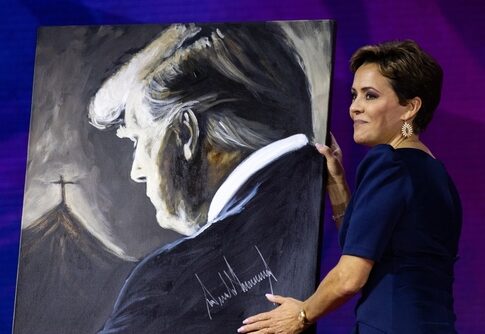Donald Trump’s effort to restore pre-pandemic work norms for federal employees reveals a complex web of legal, logistical, and cultural issues. Due to a Biden-era telework agreement that lasts until 2029, unions oppose Trump’s mandate to return to office. Existing telework agreements are expected to spark legal disputes, with Trump’s administration aiming for a courtroom battle.
Union Resistance to Proposed Changes
The federal workers’ union has vowed to oppose Donald Trump’s plans to rescind a Biden administration agreement that allows federal employees to work remotely until 2029. Donald Trump called the telework agreement, negotiated by Social Security Administration Commissioner Martin O’Malley and the American Federation of Government Employees, “very terrible.” The administration intends to challenge this agreement in court, indicating its readiness for a legal battle to end remote work for federal employees.
Everett Kelley, AFGE National President, is at the forefront, defending telework policies and emphasizing their importance for government efficiency and disaster preparedness. Despite claims that ending remote work will result in mass resignations, Kelley counters by stating that the majority of federal jobs, more than half, cannot accommodate telework, with only ten percent completely remote.
President-elect Donald Trump’s plan to have all federal employees return to their offices full-time could already be hitting a snag thanks to a union deal.https://t.co/hML7iCiWHT
— WSBT (@WSBT) December 5, 2024
Logistical and Practical Challenges
The spatial constraints of federal buildings create logistical challenges, preventing the proposed return-to-office strategy from being fully implemented. While Trump advisers Vivek Ramaswamy and Elon Musk support the idea of cutting costs and increasing efficiency by limiting remote work, their proposals may also result in voluntary federal workforce reductions. They argue that work-from-home policies contribute to inefficient use of taxpayer dollars by underutilizing government real estate.
“Requiring federal employees to come to the office five days a week would result in a wave of voluntary terminations that we welcome: If federal employees don’t want to show up, American taxpayers shouldn’t pay them for the Covid-era privilege of staying home.” – Elon Musk and Vivek Ramaswamy
Mayor Muriel Bowser agrees with Trump, urging federal employees to return to work in order to revitalize Washington, D.C. Local governments recognize the economic implications of telework at current levels. However, while Trump’s administration advocates for the return of some remote work practices, federal employees and unions continue to cite competitive advantages and increased productivity as benefits of telework.
BREAKING 🚨 Speaker Mike Johnson said Trump will be requiring all Federal Employees to return to in-person work
Our tax dollars are paying for people to work from home. Most Americans don’t get to work at home
How does that make you feel ?
— MAGA Voice (@MAGAVoice) December 5, 2024
Broader Debate and Implications
The backlash against Trump’s return-to-office agenda reflects a larger cultural debate about modern workplace flexibility and efficiency in government roles. Despite the fact that telework has been part of federal policy for years, the culture war over it has heated up, with some conservatives accusing remote work of being a taxpayer-funded benefit that reduces performance. The Biden administration maintained flexible work policies post-pandemic, preserving a discussion on balancing telework’s merits against traditional office re-engagement.
“It was like a gift to a union, and we’re going to obviously be in court to stop it.” – Donald Trump
The debate over employee locations is about modern workplace expectations and reshaping the country’s operational fabric of its federal workforce, which reflects larger societal and economic concerns. Meanwhile, federal employees prepare for ongoing discussions and possible court action to determine the future of their work environments.
Sources:
- Key union vows to fight back after Trump says he would end remote work for federal employees
- Trump says federal workers who don’t want to return to the office are “going to be dismissed”


